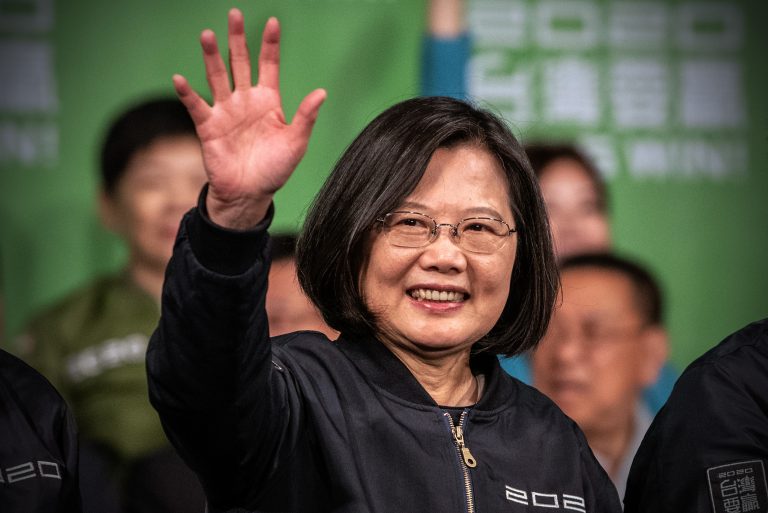On Oct. 5, Taiwanese President Tsai Ing-wen wrote in an essay for Foreign Affairs that Taipei, falling into the hands of Beijing, would bring about “catastrophic” consequences for peace in Asia. The President vowed that Taiwan will wholeheartedly defend its democracy against Beijing should a military confrontation take place.
“Taiwan is on the frontlines of the global contest between liberal democracy and authoritarianism… Long left out in the cold, Taiwan is ready to be a global force for good, with a role on the international stage that is commensurate with its abilities,” Tsai wrote.
Taiwan is not looking for any sort of military conflict with the Chinese regime. Instead, it only looks forward to a “peaceful, stable, predictable, and mutually beneficial coexistence with its neighbors.” But if Taiwan’s democracy and way of life are threatened, the island will do “whatever it takes” to defend itself.
“Amid almost daily intrusions by the People’s Liberation Army, our position on cross-strait relations remains constant: Taiwan will not bend to pressure, but nor will it turn adventurist, even when it accumulates support from the international community,” Tsai wrote in the article.
The Taiwanese president warned that should the island fall, there would be “catastrophic” consequences not just for peace in the region but also to the democratic system. “It would signal that in today’s global contest of values, authoritarianism has the upper hand over democracy.”
Success
You are now signed up for our newsletter
Success
Check your email to complete sign up
Her essay followed Beijing sending a record number of airplanes into Taiwan’s Air Defense Identification Zone (ADIZ). In the first four days of October, 149 People’s Liberation Army Air Force (PLAAF) planes intruded into the zone. On Oct. 4 alone, 56 PLAAF aircraft were sent by Beijing. Last year, Beijing sent a total of 380 planes into Taiwan’s ADIZ. This year, the numbers have almost doubled with 672 warplanes making incursions.
Taiwanese Premier Su Tseng-chang slammed Beijing for “over the top” military activity that has breached the region’s peace. He insisted that Taiwan must strengthen itself. “Only then will countries that want to annex Taiwan not dare to easily resort to force… Only when we help ourselves can others help us,” he told reporters when queried about the latest invasions by the PLAAF.
In an interview with ABC News, Taiwan’s Foreign Minister Joseph Wu stated that they are “very concerned” that Beijing is going to launch a war against the island at “some point.” He said that Chinese President Xi Jinping is under pressure at home. Beijing could manufacture a crisis and target Taiwan to divert people’s attention.
The aggressive intrusions by Beijing have prompted the U.S. State Department and the Australian government to urge Beijing to stop its use of force and end the shows of intimidation.
Beijing’s aggressive incursions have attracted criticism from its neighbor, Japan.
Foreign minister Toshimitsu Motegi said that Tokyo was looking into possible scenarios so as to be ready for whatever comes in the future. He expressed hope that Beijing and Taiwan will be able to resolve issues between them peacefully.
Though Taiwan has never been ruled by the CCP, China considers the island to be part of the mainland. President Xi Jinping has vowed to take the island even by the use of force. However, Tsai’s government sees Taiwan as separate from the communist regime.
With the threat from Beijing increasing by the day, the government of Taiwan has proposed to boost its national defense by an additional $8.7 billion over the next five years. Foreign minister Wu announced that a group of French senators would be visiting the island. By expanding defense capabilities and developing strong international ties, Taiwan hopes to put off Beijing.














